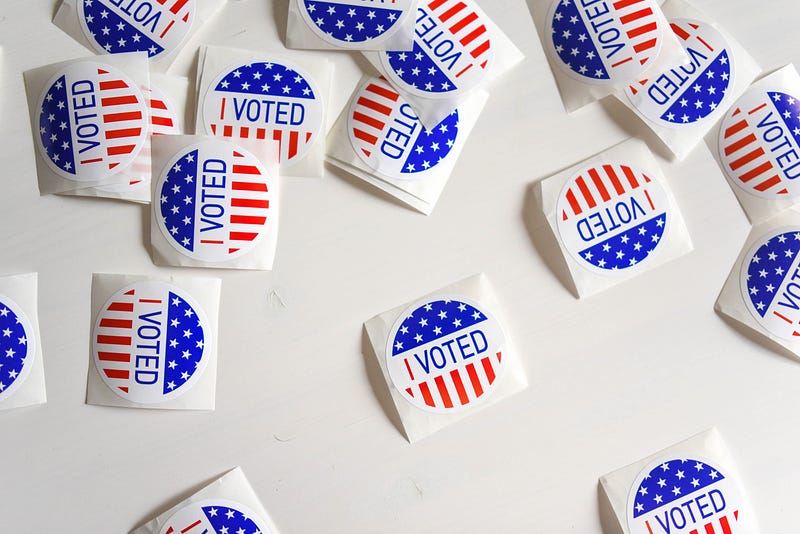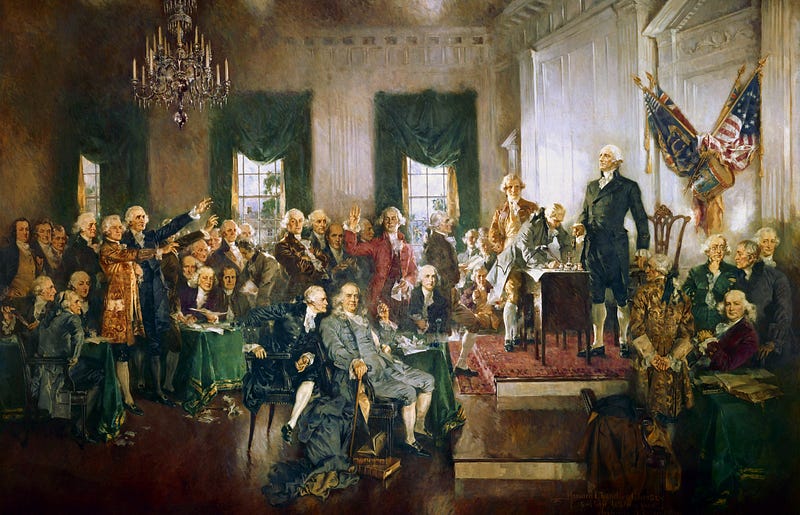A Discussion of Oliver DeMille’s 1913 Chapter 3 “World-Shifting Event #2: The Seventeenth Amendment”
In this chapter we are introduced to the second major change to the U.S. Constitution noted by Oliver DeMille, the Seventeenth Amendment beginning the direct election of US senators.
This may surprise many that senators have not always been elected by the people. When the Constitution was written, the Senate was supposed to represent the states and the House was supposed to represent the people.
As such, the senators were elected by each state legislature. The people of the state elected the members of the state legislature who then voted on the senators.
Last chapter we discussed the impact of the Sixteenth Amendment that gave us the federal income tax. The framers had wanted to prevent that kind of direct federal tax to keep the federal government in balance with the states.
Similarly, the state legislatures electing the senators was to give the states a voice in the federal government “with the power through checks and balances to protect the rights and interests of the states themselves.” (p. 39)
Prior to this amendment, it was generally the House that would vote to increase federal spending since offering more government benefits to the people can increase the likelihood of being re-elected.
But, as we saw last chapter, the federal government had to ask for money from the states to pay for such things. As such, the senators tended to vote down these proposal because they were representing the state legislatures that would have to send in the money for such programs. (p. 40)
As originally designed, our system kept a check on spending. With the Seventeenth Amendment, incentives changed so that then senators, too, wanted to increase spending to curry favor with their electorate.
But Isn’t This More Democratic?
I am always annoyed by our current elected representatives talking about our democracy because we do not have a democracy, we have a democratic republic.
The old joke about a democracy is it is two wolves and a sheep voting on what is for dinner.
A democratic republic, on the other hand, designs checks and balances to prevent the majority from running over the minority in all cases.
Changing to direct election of senators is more democratic, but it came at the expense of the power of the states and it unleashed the federal government to grow into the Leviathan we have today.
DeMille notes the framers of the Constitution were trying to provide checks and balances between the states and the federal government. (p. 41) Thus, this amendment did shift power towards the federal government.
How to Solve the Problem of the Rich and Powerful
But the framers had another motivation in their original design. They were also trying to address the reality of rich people wanting to gain control of the government.
John Adams taught that…when the Senate is made up mostly of the wealthy class,…the wealthy will seek this position of status and use it to keep the presidency in check. A Senate made up mostly of the wealthy classes from the states keeps the power of the presidency in line. (p. 41)
Adams recognized rich people are going to seek to have influence on the government so our system was designed to have a safe place for them to go where they could provide checks and balances against a tyrannical executive branch.
Specifically, John Adams recognized,
The Senate becomes the great object of ambition; and the richest and most sagacious wish to merit an advancement to it by services to the public in the house. When he has obtained the object of his wishes, you may still hope for the benefits of his exertions, without dreading his passions; for the executive power being in other hands, he has lost much of his influence with the people, and can govern very few votes more than his own among the senators. (p. 43)
It was a recognition that rich and powerful people will try to influence the government in their preferred direction so what can we do to channel those instincts into a helpful direction?
With the rich and powerful aiming for the Senate, it kept them in the public eye with all their votes on the record as opposed to the unelected lobbyists and special interests that write all our bills today.
Since 1913, such powerful individuals have been more prone to promote their goals and agendas from behind the scenes — influencing or simply purchasing media institutions, academic organizations, lobbying and special interest groups, political parties, and big business. (p. 44)
If the election of senators is the same process as the House, Adams predicted the rich would instead seek the executive branch to exercise their power as either the president or in other positions in the executive branch. Or, they would simply stay in business and use their wealth and power to influence the president from outside. (p. 41)
I think we can see that both of those scenarios have been borne out in the hundred years since the Seventeenth Amendment.
Conclusion
This amendment removed the direct representation of the states in the federal government. When combined with the Sixteenth Amendment that gave the federal government access to funds without needing to ask the states, these two changes ended the equal footing of the states and the federal government and gave us the subordinate states we know today.
How did something so opposite the original framers’ intent get passed? As early as 1826, the House introduced a bill to create the direct election of senators. They were understandably frustrated with the Senate’s unwillingness to increase spending time and time again. Since it would require the Senate to also pass it, and such a bill reduces the prestige of the Senate, it was doomed.
However, as the century wore on, reformers could point to problems with the original system. Some state legislatures struggled at times to elect a senator and the deadlock would lead to a prolonged vacancy. Further, the latter half of that century saw the rise of the Populist party, making appeals to democracy more palatable.
Still, the only way such a change was going to happen is through a constitutional amendment since the Senate was not going along with the House bills.
Article V of the Constitution allows states to call a convention to propose new amendments if 2/3 of the states apply for one. As the number of states neared that level, Congress acted because of the risk such a convention could be. Depending how the issues were defined, it could go horribly wrong and open up discussions of our Constitutionally protected rights.
With some more wrangling, the House and Senate agreed on an amendment in 1911 and sent it to the states to ratify.
It took until April 8, 1913 to achieve the required 3/4 of states to ratify and thus the Seventeenth Amendment was adopted.
It was not a coup. No one had to do anything illegal. You had close to 2/3 of the states pushing for this change, and 3/4 of the states ratified it.
And yet, it is such a major change to the design of our system that it essentially undid an important part of the framework the framers had created.
As Ben Franklin was reported to say when asked in 1787 during the Constitutional Convention what form of government do we have? “A republic, if you can keep it.”
It seems he was right to be dubious.
Reference: DeMille, Oliver, 2012. “World-Shifting Event #2: The Seventeenth Amendment” Chapter 3 of 1913, Obstacles Press, Inc., Flint, Michigan.




